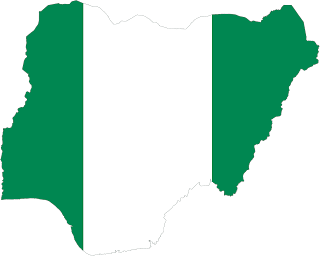The State Of The Nation By Ayo Sogunro
Last week, the Central Bank of Nigeria confirmed what has been obvious to millions of us: that these are difficult times in Nigeria. To be clear, it is hard to say there was ever an easy time for Nigerians. Yes, there were times—particularly between the late 60s and early 80s—when an educated minority had it good. Yes, for the political class, it is always good to be Nigerian. But, for the majority of citizens, it has never been easy. The story of Nigeria, for the vast majority of us—the unemployed,
subsistence farmers, minute-scale market traders, domestic workers, factory workers, wage earners and daily labourers—has been one of colonial exploitation, social inequality, underdevelopment, civil war, dictatorship, political corruption, economic instability, religious violence, and insecurity.
Still, things are about to get even more difficult.
In fact, the last few months have been dark and virulent. Mystifying marauders keep invading Middle Belt communities, destroying villages and killing the inhabitants. South of the Niger, militants are wreaking havoc; disrupting crude oil earnings and stagnating the power sector. Up to 27 state governments owe salaries to workers. Months of insistence on an unstable foreign exchange regime have damaged microeconomic activities. The economy itself is shrinking. Conversely, inflation is rising to its highest levels in years. This is a state of affairs that should have us all alarmed at best, raving mad at worst.
And yet, there is no inspiration from the centre. There has been only blame, counter-blame and excuse. The ministers of this government have no fizz. Government itself seems to consist of only the president. Public relations are limited to stern warnings and brisk lectures from the presidency. Yet, from fuel prices to traffic laws, socio-economic decisions are increasingly becoming anti-people. Laws and policies either target the urban poor in misguided copy-and-paste Western aspirations, or ignore the economic reality of the majority of Nigerians.
The legislature is unconcerned. The legislature is primarily concerned with mundane laws and mundane issues. Like regulating NGOs. That is, when it is not defending allegations of actual or threatened sexual assault. That is, when its leaders are not in court for never-ending trials.
Meanwhile, the judiciary is being scapegoated. The presidency blames the judiciary for the inefficiencies of policing, investigation and prosecution systems. Judges are being spoon-fed jurisprudence by the executive. Judges are likely to be more worried about keeping their seats under this administration than about dispensing whatever justice there ever was in this country.
And so, nobody cares about the ordinary Nigerian. There is nobody out there, thinking about how to do us some good. Not the president, not the ministers, not the legislature, not the judiciary. The governors do not care; the local governments do not care. These people want to rule other people, not govern society. If you are a Nigerian, then you are on your own.
This is the state of the nation.
Of course, this is a pessimistic scenario. But we Nigerians need a strong dose. For too long, we have sold ourselves the insane idea that by some magical stroke of good leadership, things would get better. This will not happen. A political system cannot simply change from within; it has to face pressure from without.
But we do not want to put pressure on government. Instead, we want our social critics to “proffer solutions”. This reasoning is another insanity we have sold ourselves over the years. It has become so standard that we expect newspaper columnists to provide us a political solution every week. As if government cares. True, public intellectuals may engage society to broaden perspectives. Non-profit entities may volunteer to fix certain issues. Everyday citizens may agitate for a particular course of action. But, in the end, it is not the duty of the intellectual, the charity or the ordinary citizen to fix socio-political problems. This is the duty of government. This is the reason we create governments.
We elect our public officials to think about us. We empower them with the full resources of state. We pay them in taxes and our collective resources. We house them, feed them, transport them, nurse them, clothe them, and may even bury them in exchange for their concern over our affairs.
Yet, we are still on our own.
Instead, we keep getting excuses for why things are not working. We are rebuked and insulted by public officials. We have become whipped and accepting. We blame ourselves for the lack of social development. We invest government with resources then absolve it of responsibility. Instead, we challenge ourselves to work harder, to do better. And when our social critics call out government, we tell them to shut up or “proffer solutions”. Think of that: we order our social critics to fix things while we accept excuses from our elected leaders. Of course, our public intellectuals have degraded from the irreverent impartiality of unyielding social thinkers to the simpering partisanship of special advisers wannabe.
This is madness.
The state of the nation is depressing. We are at fault for this, but not because we are lazy, corrupt or stupid. We are no more lazy, corrupt or stupid than the citizens of most developed countries. Instead we are at fault because we love our government officials more than we love ourselves. Because we respect public authority more than we respect our dignity. Because we have turned government into religion, replacing healthy cynicism with blind faith.
And now we are on our own.
Difficult times are coming. But we have to start demanding better things, better policies, and a better attitude to us from public officials. We have to stop being schoolchildren, grateful for small favours. We have to develop the confidence to demand, to learn dissatisfaction. There is no magical change out there. Only our collective interrogation of this government will force a change for the better.


Comments
Post a Comment